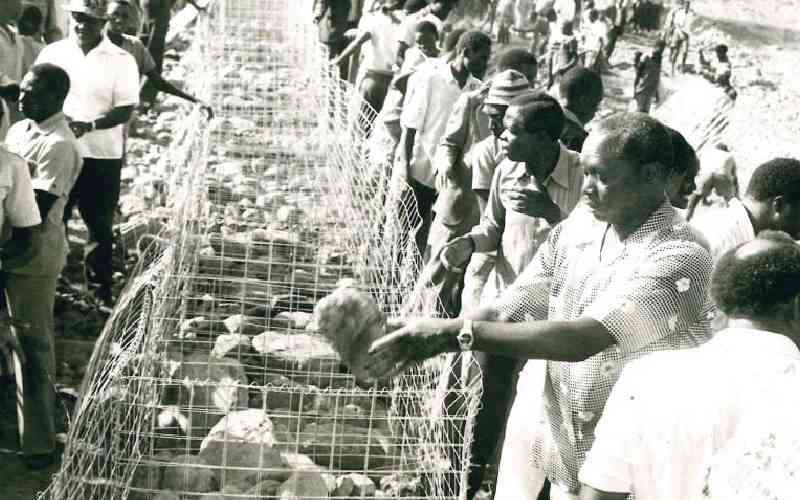
President William Ruto and his Cabinet will forego one-month salary to stand with those affected by drought.
This is a very noble gesture that ought to be supported by all Kenyans. The one-month salary the Cabinet will forgo is about Sh22 million. If you compare this to their total worth of Sh15. 4 billion that the CSs declared during their vetting, there is reason to believe the government is not doing much to fight drought.
The drought mitigation needs both long-term and short-term solutions. Kenya Kwanza is using the same strategies previous governments used to fight drought. In 2011, the Jubilee government and other stakeholders led Kenyans in donating over Sh1 billion to support those affected by drought, especially in northern Kenya. Donating money to fight drought every season is worrying.
Drought is brought about by is over-reliance on rainfall. Kenyan rivers, lakes and other water sources depend on rainfall. Drought interrupts water supply, causes deaths of people, livestock and wild animals; affects hydro-power generation at times leading to power rationing; causes desertification and human and wildlife conflicts.
According to National Management Authority (NDMA), about 4.3 million people need food assistance. . The NDMA states that over 942,000 cases of malnutrition have been reported among children aged 6-59 months and 134,000 cases of pregnant and lactating women are acutely malnourished and need treatment. The number of people in need of food aid is projected to reach six million by January next year.
Kenya has always taken reactive crisis management responses, instead of proactive approaches to fight drought. This is not the first time Kenya has been hit by drought. We had drought spells in 1997, 2002, 2004, 2005, 2010 and 2011. The 2011 drought was said to be the worst in 60 years
Kenya Kwanza should come up with new strategies. The government can fight drought by encouraging planting of trees. During late President Daniel arap Moi's regime, there was a day and a month specially set aside to plant trees. Nearly every Kenya knew that April was the tree planting month. Moi coined the phrase, "Kata mti moja, panda mbili" (cut one tree, plant two).
During the Mashujaa Day celebrations, President Ruto promised to build 100 dams in five years. This will be bring to an end perennial food shortage. Kenya can learn from Israel where after a long drought in 1998-2002, the government was forced to intensify seawater desalination and reclaim flood and sewage water. The Kenyan government can desalinate the Indian Ocean waters.
Food preservation is also important. In 2019, there was a potato glut in Nyandarua County and the produce was left to rot in the farms. Equally, in 2020, the then-chairman of the New Kenya Co-operative Creameries board announced milk glut. Whenever there is a glut, the government should store food for use during drought spells.
-Rev. Canon. Dr. Olando is the Principal, Bishop Hannington Institute, Mombasa
 The Standard Group Plc is a multi-media organization with investments in media
platforms spanning newspaper print
operations, television, radio broadcasting, digital and online services. The
Standard Group is recognized as a
leading multi-media house in Kenya with a key influence in matters of national
and international interest.
The Standard Group Plc is a multi-media organization with investments in media
platforms spanning newspaper print
operations, television, radio broadcasting, digital and online services. The
Standard Group is recognized as a
leading multi-media house in Kenya with a key influence in matters of national
and international interest.


